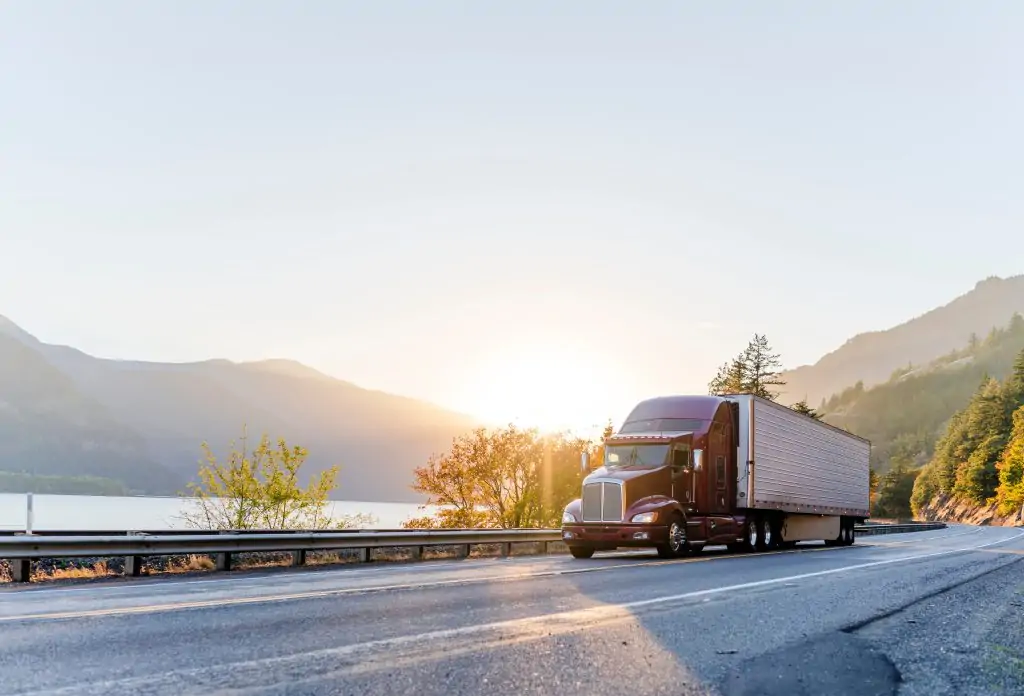The Road to Eco-friendly Trucking: Embracing Sustainable Practices

The road to eco-friendly trucking is full of innovation, responsibility, and a commitment to reducing environmental impact. This journey involves rethinking traditional practices and exploring sustainable alternatives that align with the industry’s environmental goals. By adopting green trucking solutions, the industry is not only contributing to a healthier planet but also creating a more sustainable, efficient future in transportation.
UNDERSTANDING ECO-FRIENDLY TRUCKING PRACTICES
- Reducing Carbon Footprint: A key focus of eco-friendly trucking is lowering the carbon emissions associated with diesel engines. This involves optimizing routes for efficiency, reducing idle time, and maintaining trucks to operate at peak performance.
- Incorporating Alternative Fuels: Transitioning to alternative fuels like biodiesel, electric, or hydrogen fuel cells plays a significant role. These fuels offer a cleaner alternative to traditional diesel, significantly reducing the amount of greenhouse gases emitted.
STEPS TOWARD SUSTAINABLE TRUCKING
- Enhancing Fuel Efficiency: Improving fuel efficiency is important. This includes regular maintenance checks to ensure engines are running efficiently, training drivers in eco-driving techniques, and investing in aerodynamic truck designs to reduce fuel consumption.
- Adopting Alternative Fuels: The shift to alternative fuels is a game-changer. Using biodiesel, electric, or hydrogen fuel cells can dramatically reduce emissions. Investing in these technologies not only benefits the environment but also prepares companies for a future where traditional diesel might become obsolete.
- Efficient Logistics and Route Planning: Smart logistics is vital. Utilizing advanced software for route optimization can significantly cut down unnecessary mileage, thereby reducing fuel consumption and emissions.
- Investing in Sustainable Technologies: Embracing technologies like electric vehicles (EVs) and hybrid engines, which are increasingly becoming viable options for long-haul trucking, is essential for forward-thinking companies.
ENVIRONMENTAL BENEFITS OF GREEN TRUCKING
THE IMPACT ON MENTAL HEALTH AND JOB SATISFACTION
The switch to eco-friendly practices is pivotal in diminishing greenhouse gas emissions from trucks, which are traditionally among the heaviest polluters. By adopting cleaner fuels and more efficient driving methods, the industry can significantly lower its CO2 and nitrogen oxide emissions. This reduction is crucial in the global fight against climate change, helping to stabilize global temperatures and reduce the frequency of extreme weather events.IMPROVED AIR QUALITY
The benefit of lower emissions extends to enhanced air quality, particularly in urban areas where truck traffic is dense. Cleaner air leads to significant public health benefits, reducing the incidence of respiratory diseases and improving overall life quality. This is particularly impactful for communities living near major transport routes who are often disproportionately affected by truck emissions.CONSERVATION OF NATURAL RESOURCES
Eco-friendly trucking practices often mean more cautious use of resources. This includes not only fuel but also the materials used in vehicle manufacturing and maintenance. For example, longer-lasting truck parts mean less frequent replacements and less waste. Similarly, efficient fuel use reduces the demand for fossil fuels, helping to preserve these non-renewable resources for future generations.PROMOTING BIODIVERSITY
The reduction of pollution and a smaller carbon footprint contribute positively to local and global ecosystems. Cleaner trucking operations reduce acid rain, which harms forests and freshwater habitats. Less ground-level ozone, a result of lower emissions, is beneficial for wildlife, particularly sensitive species. This helps in maintaining the delicate balance of ecosystems and supports biodiversity.The environmental advantages of green trucking underscore the industry’s role in fostering a sustainable future. By reducing the ecological impact of freight transportation, the trucking industry not only adheres to its responsibility towards the planet but also sets an example for other sectors to follow.NAVIGATING A SUSTAINABLE ROUTE IN TRUCKING
As we conclude this exploration into eco-friendly trucking, it’s clear that embracing sustainable practices is not just beneficial but imperative for the future of the trucking industry. The steps toward sustainable trucking — from improving fuel efficiency to adopting alternative fuels and cutting-edge technology —are paving the way for a greener, more responsible industry.
It’s essential for all stakeholders in the trucking industry —from drivers to company owners — to recognize their role in this environmental shift. Each step towards sustainability, no matter how small, contributes to a larger global impact.
At Dailey CDL Solutions, we understand the importance of preparing our CDL trainees for a future that values sustainability. We aim to educate and encourage the next generation of truck drivers to adopt and advocate for eco-friendly practices in their professional lives.
We encourage our readers to consider the long-term benefits of eco-friendly trucking practices. Whether you are considering a career in trucking or are already a part of this dynamic industry, there’s a role for everyone in making trucking more sustainable.
Visit Dailey CDL Solutions Schools’ homepage to learn more about our commitment to eco-friendly trucking and explore our CDL training programs. You can also find out more about our Dailey CDL Solutions locations and initiatives. Together, we can drive towards a cleaner, more sustainable future in trucking.
1. WHAT ARE THE COST IMPLICATIONS OF IMPLEMENTING ECO-FRIENDLY TRUCKING PRACTICES COMPARED TO TRADITIONAL METHODS?
- The initial investment in eco-friendly trucks, such as electric or hydrogen fuel cell vehicles, is higher than for traditional diesel trucks. However, the total ownership cost can be lower due to savings on fuel and maintenance. Governments may offer incentives like tax credits or reduced toll fees, which can further decrease operational costs.
2. WHAT IS THE CURRENT AVAILABILITY OF ECO-FRIENDLY TRUCKING TECHNOLOGIES AND THE SUPPORTING INFRASTRUCTURE, ESPECIALLY IN LESS DEVELOPED REGIONS?
- The availability of eco-friendly trucking technologies is growing but varies by region. Developed areas tend to have better access to electric and hydrogen fuel infrastructure, whereas less developed regions may lag in availability. The expansion of this infrastructure is critical for the broader adoption of eco-friendly vehicles, with progress depending on government and private sector investment.
3. HOW ARE GOVERNMENTS AND REGULATORY BODIES SUPPORTING OR HINDERING THE TRANSITION TO ECO-FRIENDLY TRUCKING PRACTICES, AND WHAT INCENTIVES ARE AVAILABLE?
- Governments worldwide are supporting the eco-friendly transition through stricter emissions standards and incentives such as subsidies for eco-friendly vehicle purchases and investments in infrastructure. However, the level of support varies by region, and the lack of uniform regulations can pose challenges for trucking companies operating across different jurisdictions. The main challenges include the high upfront costs and technological limitations, like the range of electric trucks.
Disclaimer: The content in this article is for informational purposes only and may not reflect the most current developments in eco-friendly trucking. For accurate and up-to-date information, please consult industry experts or relevant authorities.
- Back
